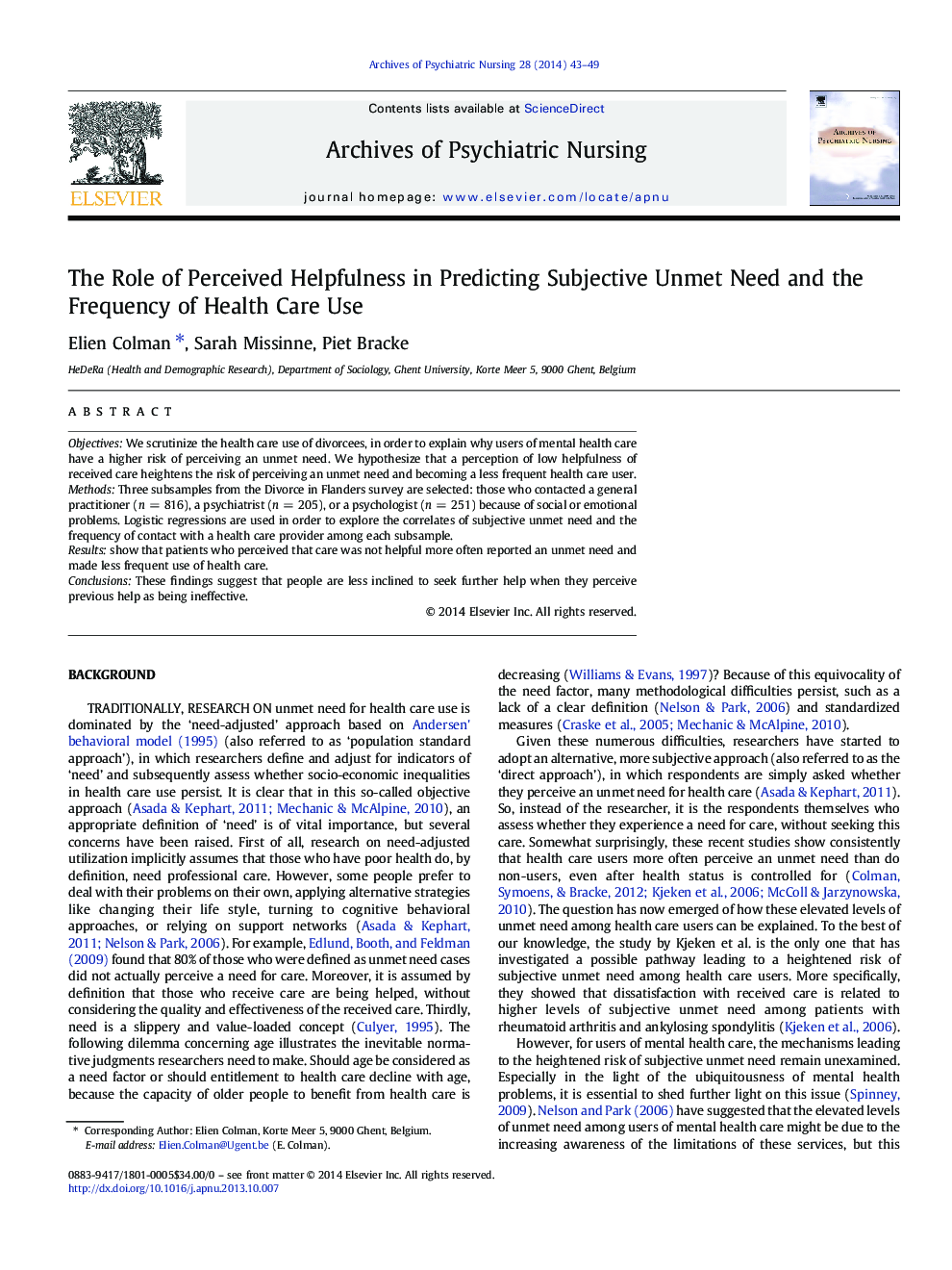| Article ID | Journal | Published Year | Pages | File Type |
|---|---|---|---|---|
| 316193 | Archives of Psychiatric Nursing | 2014 | 7 Pages |
Objectives: We scrutinize the health care use of divorcees, in order to explain why users of mental health care have a higher risk of perceiving an unmet need. We hypothesize that a perception of low helpfulness of received care heightens the risk of perceiving an unmet need and becoming a less frequent health care user. Methods: Three subsamples from the Divorce in Flanders survey are selected: those who contacted a general practitioner (n = 816), a psychiatrist (n = 205), or a psychologist (n = 251) because of social or emotional problems. Logistic regressions are used in order to explore the correlates of subjective unmet need and the frequency of contact with a health care provider among each subsample. Results: show that patients who perceived that care was not helpful more often reported an unmet need and made less frequent use of health care. Conclusions: These findings suggest that people are less inclined to seek further help when they perceive previous help as being ineffective.
